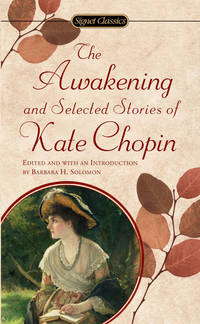Responding to Rhia’s post about friendship:
Friendship is like a coin. You can gain a new relationship, learn the aspects of love, and maybe find self-meaning throughout the whole friendship experience. Sadly, there exists a flipside on every coin. Friendship can cause hurt, anger, and depression. Why do we feel worse when a close friend betrays us? I would feel terrible. Seeing as you trusted the person, revealed more of yourself, and disclosed secrets to this person, of course you’d be hurt. We give a lot, and we expect a lot in return. I guess the toss is all we have to be careful with. Which side will it land on? Will it be heads or tails? I guess friendship is worth the risk.
There are all kinds of friendships. I have friends I only see at school. There are friends I hang out with in and out of school. I also have friends that touch and go. Depending on what you do with this friend, that’s what defines what kind of friendship exists between the two of you. How strong is a friendship? Now that’s a different question. Over time, trial, and hardships will you realize how strong and how much stronger your friendship is and could be. You can relate this last statement with Lennie and George. Obviously, Lennie and George share quite a strong relationship with each other. Built on trust, love, and time, Lennie and George have cultivated a relationship that can go through many trials. And it has, in the story. Curly’s wife has tried severing the relationship between Lennie and George, but Lennie’s strength of trust, determination, and sheer stubbornness, has allowed him to stay faithful to George’s word. This part in the story touched my heart because here’s a man/child who has a mental condition, but can still find the courage to defend his friend. This love is extremely beautiful and rare. I have found myself wishing and hoping that someday, I too will develop a relationship as mighty as the friendship Lennie and George share.
I agree with Mrs. Griffin, when she says, “Many times immature (and I'm not referring to the young, only) people blurt out the title of "friend" without even thinking about what they are really implying.” I strongly believe that people unwisely use the word “friend” to describe a person. Knowing better than my peers, I refrain from using the word too loosely because friend is a very strong word. Moreover, I choose my friends wisely because what good is having many “friends” when not one is trustworthy, loyal, and brings you joy? I may have a few real friends, but I can bet my bottom that all of them will speak to defend me, care about my feelings, and ask for me when my lack of presence has been noticed. And yes, I too blame America’s lack of “language control” (nice way of putting this, Mrs. Griffin.).
1. How far should a person go in the name of friendship?
A person should go as far as is comfortable. It really depends on what kind of friendship a person has with another.
2. Should someone break the law to protect a friend?
If that person who is in trouble needs their “friend” to break the law, then what kind of friend is that? I know I’m being blunt because there are certain “circumstances” that do question the statement preceding this. In turn, I ask: Does the means justify the ends? Would a real friend ask you to put yourself in jeopardy? Being the person I am, I would never ask my friends for this; especially when what I ask would risk my friend’s life, safety, and happiness. I believe that this act of selflessness defines true friendship. I may yet perfect this bold statement. Being still young and naïve, it’s hard for me to stay selfless.
3. How far should someone cover up for a friend?
I ask you to read the answer for question number two. I have had times where I covered up for my friends and my sister just because their begging and puppy-dog eyes got to me. If covering my friend up doesn’t risk anyone else’s safety or health, then it’s ok.
4. What makes and breaks relationships?
Getting to know and understand a person is the start of making a friendship. After doing this, accepting is the next step. Acceptance is usually one of the hardest tasks to overcome in a friendship. After acceptance, some trial, some ordeal, will come along to try to ruin a friendship and it’s just a matter of getting through it. Staying strong or giving in? The question is: Is the friendship you have with a person worth going through a milestone in life? Is pain and suffering worth it? One thing you have to remember is, you can’t have everything in life. More than half of the time, you must give up one thing to keep another. Again, is it worth it?



